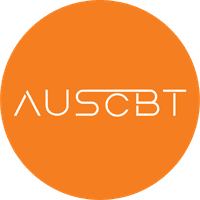
This role has a high level of AI exposure. While some human skills are required, many tasks could be automated or replaced by new technology.
Explore all careersTax Agents help clients with tax returns, GST, and superannuation, offering advice on structuring and taxation while registered with the TPG.
Get qualified to work as a Tax Agent with a course recognised across Australia. Speak to a training provider to learn more.























The average weekly earnings for a full-time Tax Agent is currently $1,600 per week ($83,200 annually). This is a median figure for full-time employees and should be considered a guide only. Self-employed Tax Agents often earn much higher salaries.
 Courses.com.au Team
Courses.com.au Team
There are approximately 130,000 qualified accountants working in Australia right now, many of these are registered Tax Agents. There are job opportunities for Tax Agents in all parts of the country, especially in remote and rural locations. Tax Agents are employed by large corporations, government departments, and accounting firms, but many are self-employed or work part-time for smaller tax agencies. Becoming a Tax Agent is a great career choice for anyone wanting flexible hours and the opportunity to work remotely.
Source: Australian Institute of Public Accountants, National Careers Institute, and Labour Market Insights 2024.
 Courses.com.au Team
Courses.com.au Team
Tax Agents in Australia must be registered with the Tax Practitioner’s Board (TPB) and have appropriate qualifications and professional experience. The minimum standards for TPB registration include: 1. Completing a TPB-approved course that includes modules in Australian Tax Law and Commercial Law. Suitable qualifications include the Diploma of Accounting, Advanced Diploma of Accounting, Bachelor of Accounting, and Bachelor of Business (Accounting). 2. Completing 12-24 months of work experience under the supervision of a registered Tax Agent or accountant. 3. Holding professional indemnity insurance.
 Courses.com.au Team
Courses.com.au Team
Browse occupations related to Tax Agent



Embarking on a career in taxation can be both rewarding and fulfilling, and with the availability of various Tax Agent courses in Tasmania, aspiring tax professionals are well-equipped to succeed in this vital field. These courses, offered by recognised training providers, cover essential topics such as tax legislation, compliance, and client advisory services, ensuring that graduates are prepared to take on roles in the dynamic financial landscape of Tasmania. Whether you are located in Hobart or across the picturesque Tasman Peninsula, pursuing a tax-related qualification opens numerous avenues for professional growth.
In addition to becoming a qualified Tax Agent, there are several related career paths that you might find intriguing. For example, you might explore opportunities as an Accounts Clerk, where your attention to detail will be invaluable for maintaining accurate financial records. Alternatively, roles such as a Payroll Clerk or an Accounts Officer offer pathways into the accounting sector, allowing you to build essential skills and experience.
For those looking to specialise further in taxation, positions such as Tax Accountant present opportunities to work closely with individuals and businesses to optimise tax strategies. Furthermore, advancing your career may lead you to roles such as Accounting Manager or even a Financial Controller, where your expertise will be crucial in guiding financial decision-making. Each of these professions plays an essential role in supporting the economic health of Tasmania.
Lastly, if you're passionate about uncovering financial discrepancies, a career as a Forensic Accountant could be the perfect fit. This role allows you to utilise investigative skills combined with your tax knowledge to address fraud and financial mismanagement. With the array of Tax Agent courses in Tasmania available, now is the ideal time to invest in your future and explore the diverse opportunities within the accounting and taxation fields. Consider enrolling in a course today, and pave the way for a prosperous career ahead!